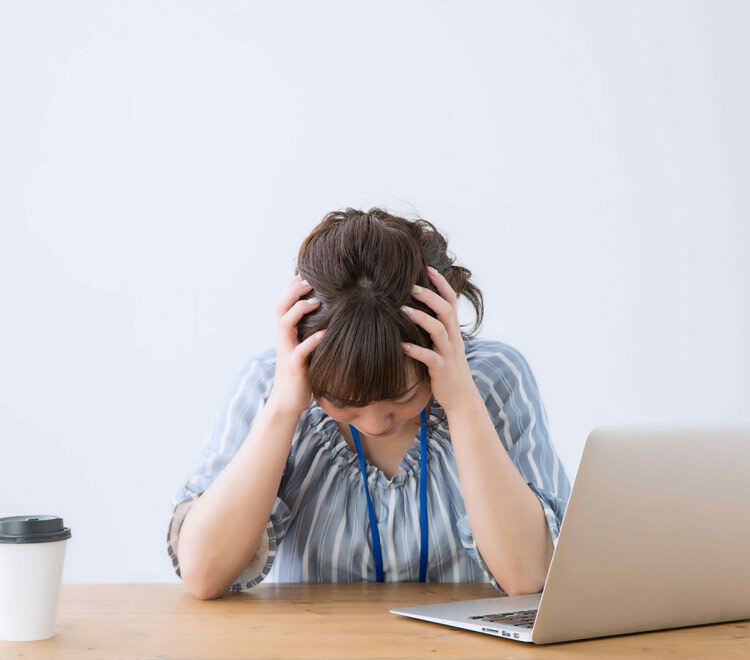Acne isn’t just annoying and unsightly, it can absolutely wreck your confidence and stress you out. Especially if you sprout pimples a day before a big event like a family wedding or your birthday. So it’s ironic to realize then that your stress about having clear skin may actually be causing your acne.
Stress isn’t the only factor at play here of course. Acne breakouts happen when the sebaceous glands in your pores clog up with dirt, dead skin cells, and excess oil. But this is also affected by the presence of acne-producing bacteria, your hormones, age, and even genetic predisposition to it. However, scientists have indeed proved that stress can trigger or worsen the onset of acne.

Work planning
There are lots of resources online that teach you to manage your time better. Planning out your work load for the day or the week (whether that’s from the office, home, or errands for the family) can do wonders to avoid stress about last minute deadlines. If that’s not working, maybe you’re just too overworked in general? In that case, take a vacation, or at least indulge in a staycation to give yourself a break. Consider a change in job if you’re being overworked at your office. Once your mind is more relaxed, you’ll automatically find your acne less problematic, not to mention your life in general.

Communicate more
Quite often, relationship stress can be attributed to fears and misunderstandings stemming from a lack of proper communication. Whether interactions with your partner, your kid, your parents, or your co-workers…talk it out. Don’t be afraid to say what’s on your mind, and don’t be afraid to open up to the people you trust. Once you get things off your chest, you’re not going to be carrying that weight around on your shoulders, causing you stress.

Don’t forget to eat right
Often, because of stress, people begin to neglect their eating habits. Now, despite the popular notion that oily food makes your skin oily, that’s never been proven. However, high-carb meals with a lot of simple sugars do indeed trigger acne outbreaks. Try to manage what you eat, and resort to less fast food if you can.

The science of stress
Back in2003, when the people were merely theorizing that acne was directly related to stress, researchers at the Beth Israel Deaconess Medical Center in Boston set out to find the truth. There, Dr Alexa Kimball found that stress could indeed trigger an acne episode. Moreover, the more stress you have, the worse your breakout.
Doctors now know that stressful situations increases the body’s production of corticotrophin-releasing hormone, or CRH. This adheres itself to your skin’s sebaceous glands, bumping up your natural oil production, causing pimples.
And because these sebaceous glands are also part of your body’s immune system (they protect you from microorganisms) they’re vulnerable to becoming inflamed, just like your tonsils when you have a cold for instance. That just makes your pimples redder and more swollen.
And to make matters worse, stress sends panic signals to your nerves, causing you to feel more itches, so you’re more likely to pick at those messy pimples. Of course, you should do your best not to, because that’s what causes acne scarring.
So, what do you do to avoid stress acne? Well, you learn to chill out of course.

Take time for self-care
Maybe life in general gets to you, with all the responsibilities of work ad home. In that case, try to carve out some time on a regular basis to take care of yourself. Take up yoga, try a meditation app on your phone, maybe engage more in your hobbies or exercise, or spend more time with your family and friends. Do whatever you need to center yourself.

Sleep well
A good sleep schedule is critical to avoiding stress. That doesn’t just mean going to bed and waking on time. It also means cutting out scrolling on your phone before going to bed. If you’re having trouble sleeping, you also don’t want to be using a sleep tracker or checking the time through the night. Both can trigger “sleep anxiety”, which is when you worry about not getting enough sleep in the time you have. If you’re really having trouble with this, visit a doctor to test for insomnia or other sleep disorders.

Consult your doctor
If you foresee a stressful event on the horizon, like a new baby on the way, moving your home, or something similar, consult your dermatologist. They may provide you with a more aggressive cream or antibiotic to use for the time being. Oral medications like Isotretinoin, which is a Vitamin A derivative, have proven to be very effective in chronic acne treatment. It’s not a one-size-fits-all, but your doctor can let you know what the safe treatment options for you are.


